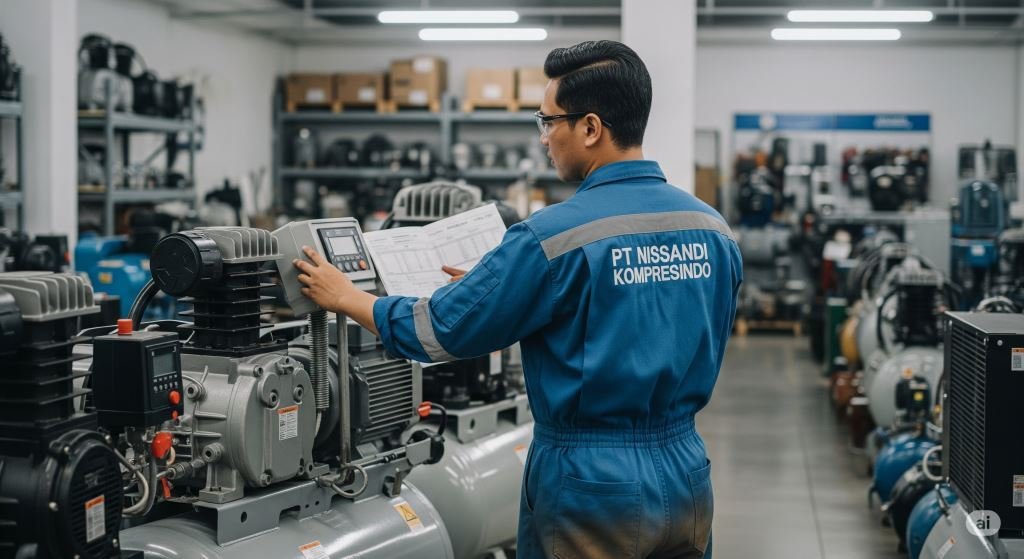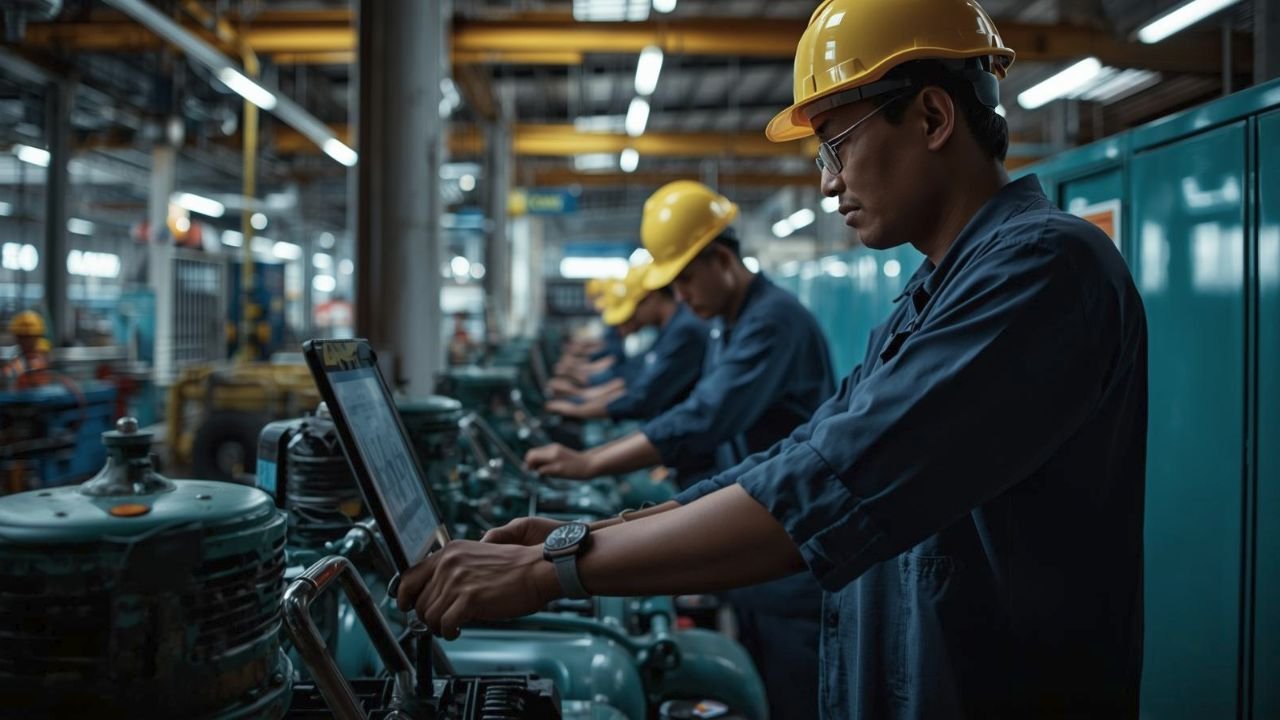PT Nissandi Kompresindo – In the industrial world, an air compressor is the heart of many operations, powering everything from manufacturing tools to assembly lines. Choosing the right one is not merely about finding a machine that works, but about selecting a partner that enhances efficiency, reduces costs, and ensures reliability. For business owners, managers, and technical staff, this decision requires careful consideration.
At PT Nissandi Kompresindo, we understand that every industrial application is unique. This guide will walk you through the essential factors to consider, helping you make an informed decision for your business in Banten, DKI Jakarta, and beyond.
1. Understand Your Application and Air Requirements
Before looking at any specific model, you must first define your needs. Ask yourself these key questions:
- What are you powering? Is it a small pneumatic tool, a large production line, or a remote construction site?
- What is the required pressure (PSI or bar)? This is crucial, as a compressor that can’t meet the minimum pressure will be useless.
- What is the required airflow (CFM or m³/min)? This determines the volume of air needed per minute to power your tools. Insufficient airflow can lead to poor performance and delays.
- How often will it run? For continuous, 24/7 operations, a rotary screw compressor is ideal. For intermittent use, a piston compressor might suffice.
2. Types of Industrial Air Compressors
The market offers a variety of compressor types, each with its own set of advantages. Knowing the differences will help you narrow down your options.
a. Rotary Screw Compressors:
- Best for: Continuous, heavy-duty industrial applications.
- Pros: High efficiency, low noise levels, and long service life. This is the workhorse of many factories.
- Reciprocating (Piston) Compressors:
- Best for: Intermittent use and smaller workshops.
- Pros: Cost-effective and easy to maintain.
b. Oil-Free Compressors:
- Best for: Industries that require high-purity air, such as food and beverage, pharmaceuticals, and electronics.
- Pros: Eliminates the risk of oil contamination in the end product.
c. Portable Compressors:
- Best for: On-site applications, construction, and remote jobs.
- Pros: Versatility and mobility. Our range of diesel-powered portable compressor options provides flexibility for any job location.
3. Consider Efficiency and Total Cost of Ownership
The initial purchase price of an industrial compressor is only part of the story. The total cost of ownership includes:
- Energy Consumption: This is often the largest expense. A highly efficient compressor, such as those offered by our trusted partner, Sollant Air Compressor, can lead to significant savings over its lifespan.
- Maintenance & Service: Reliable service air compressor support is vital. Look for a provider that offers quick response times and certified technicians to minimize downtime and prevent costly repairs.
- Spare Parts: Using genuine spare parts ensures the longevity and performance of your machine.
4. Don’t Overlook After-Sales Support
A compressor is a long-term investment. The provider’s commitment to after-sales service can be a game-changer. PT Nissandi Kompresindo offers comprehensive service air compressor solutions, including technical advice, maintenance contracts, and a quick-response team to assist customers across Banten, DKI Jakarta, and West Java.
Choosing the right air compressor is a critical decision that impacts your productivity and bottom line. By carefully assessing your needs and considering the types, efficiency, and support services available, you can select a solution that truly serves your business.
At PT Nissandi Kompresindo, we are the authorized distributor of Sollant Air Compressors and provide expert services for all major brands. With our fast-response times, verified technicians, and commitment to customer satisfaction, we are your trusted partner for all air compressor needs.
Contact us today to find the perfect industrial compressor solution for your business.





